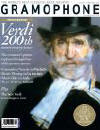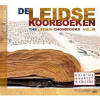Texte paru dans: / Appeared in:
*

GRAMOPHONE (02/2013)
Pour s'abonner /
Subscription information
Etcetera
KTC1412

8711801014128 (ID279)
Consultez toutes les évaluations recensées pour ce cd
~~~~ Reach all the evaluations located for this CD
Reviewer: Fabrice Fitch
Dutch ensembles explore music from the
Leiden books
This two-CD set is the third of a series devoted to a mid-l6th-century group
of six choirbooks preserved in the Dutch town of Leiden (with each set being
devoted to one of them). Beautifully copied, they contain some surprising
musical treasures. The Egidius Kwartet join forces with an eponymous
‘College’ or choir of mixed voices and the majority of pieces heard here are
for this larger ensemble. The first disc, devoted to motets by some of the
most famous composers of the time, is perhaps the more impressive of the
two: with the exception of a couple of lovely, anonymous settings of the
Regina caeli, these are large-scale pieces, elaborate and full of incident,
from a generation that has yet to receive its full due discographically. I
have not always found Clemens non Papa the easiest composer to fathom but
these pieces make as good a case for him as I’ve heard recently, and the
Song of Songs setting Vuinerasti cor meum by Pierre Moulu is most
impressive. The choir’s singing here is more assured than in the first
instalment (1/1 1) and I gather that later volumes promise better still.
As with the first volume, this set includes a couple of Masses on its second disc. The setting by Cornelius Canis on his own motet Pastores loquebantur is competent, if at times redictable: the Agnus Dei in particular outstays its welcome. The ensemble’s rather cautious approach, discernible in the previous set, veers here towards the revential; at the start of the Mass, intonation and ensemble are a little uncertain. The anonymous Requiem setting is however worth hearing, especially if (like me) you’ve heard a dozen recordings of the text in various guises in the past few months. That said, the Paul Van Nevel-like doubling of one of the lines in the later movements (I assume) leaves me puzzled. The booklet is lavishly designed with copious, helpful annotations from the leading Dutch scholar Eric Jas. Would that all European countries were this proud of their early musical heritage.
Cliquez l'un ou l'autre
bouton pour découvrir bien d'autres critiques de CD
Click either button for many other reviews


